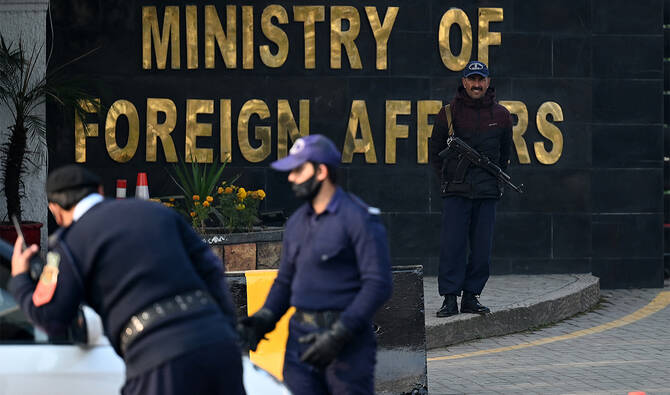In a strong and unequivocal statement issued on August 5, 2025, Pakistan’s Ministry of Foreign Affairs (MOFA) has officially rejected allegations made by Ukraine, which claimed that Pakistani nationals were involved in the ongoing military conflict within Ukrainian territory. The Foreign Office dismissed the claims as baseless, speculative, and lacking any credible evidence, reaffirming Pakistan’s historical and principled stance of non-alignment and non-interference in the internal affairs of other nations.
Background of the Allegations
The controversy began when Ukrainian authorities alleged in an international briefing that foreign nationals, including individuals from Pakistan, were being identified among armed combatants in conflict zones. While no tangible proof was provided publicly or through diplomatic channels, the statement quickly gained attention in global media and sparked confusion regarding Pakistan’s position.
Ukraine suggested that foreign fighters might have entered the conflict voluntarily or through private arrangements. However, no verified documentation or official identity verification accompanied the claim.
Pakistan’s Firm Diplomatic Response
In response, Pakistan’s Foreign Office delivered a strongly worded statement that categorically refuted these claims. The spokesperson clarified that no Pakistani citizen or group had any involvement in the conflict, whether through government sponsorship or as independent actors. Pakistan reiterated that its citizens are expected to comply with international laws and that any violation of this principle is both illegal and subject to investigation under Pakistani law.
The Foreign Office further emphasized that Islamabad had not received any formal complaint or evidence from Kyiv to support the accusations. Diplomatic channels remain open, but no communication has thus far substantiated the involvement of Pakistani nationals.
Pakistan’s Non-Aligned Foreign Policy Reaffirmed
The rejection of the allegations was accompanied by a broader reaffirmation of Pakistan’s foreign policy doctrine, which rests on three core principles:
- Non-alignment in armed conflicts between foreign nations.
- Commitment to peaceful resolution of disputes through diplomacy and international cooperation.
- Upholding of international law and the United Nations Charter, especially in matters concerning sovereignty and territorial integrity.
The Foreign Office highlighted that Pakistan has consistently played a constructive role in global peacekeeping efforts, hosting international dialogues and contributing troops to UN missions further reinforcing its credibility as a peace-seeking nation.
Focus on Bilateral and Multilateral Diplomacy
While Pakistan has traditionally maintained cordial but limited diplomatic engagement with Ukraine, it continues to value bilateral relations and is open to constructive dialogue on the matter. Islamabad invited Ukrainian authorities to share any credible information they might have, with the assurance that any proven misconduct involving Pakistani nationals would be dealt with firmly and transparently under the country’s legal framework.
The Foreign Office also cautioned the international community against propagating unverified allegations, warning that such narratives could strain diplomatic ties and distract from genuine conflict resolution efforts.
Broader Regional and Global Implications
In a time when geopolitical tensions are high particularly in Eastern Europe Pakistan’s stance is reflective of a broader trend among developing nations that seek to remain neutral amidst superpower rivalries and regional wars. Islamabad has long avoided entanglement in proxy conflicts and emphasizes economic cooperation, strategic dialogue, and regional stability as the cornerstones of its global engagement.
This development also comes as Pakistan is navigating its own delicate security landscape, including efforts to combat terrorism, stabilize its borders, and manage internal economic reforms. It has no interest in allowing any perception of involvement in a distant conflict to disrupt its internal priorities or foreign relations.
Conclusion
Pakistan’s swift and firm denial of Ukraine’s allegations underscores its resolute commitment to a neutral and principled foreign policy. In the absence of any tangible proof from Ukrainian authorities, Islamabad stands by its position that Pakistani nationals are not involved in the conflict. The response also serves as a reminder of the importance of responsible diplomacy, particularly during times of international unrest.
Moving forward, Pakistan has expressed willingness to engage in constructive diplomacy and investigate any substantiated concerns, should Ukraine provide legitimate evidence. Until then, the matter remains closed from Islamabad’s perspective, reaffirming the country’s intention to remain a neutral actor focused on peace, cooperation, and development on the global stage.



Comments (0)
No comments yet. Be the first to comment!
Leave a Comment